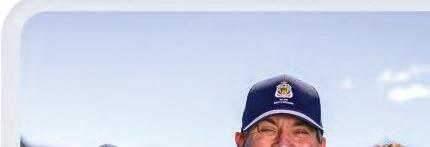“I REFUSE TO WALK BACKWARDS INTO THE FUTURE”
— Ken Fayle on how Vietnam veterans’ experiences are changing support for young veterans

CAMARADERIE AT AQUA RUGBY
HOW GRAFTON IS WINNING OVER NEW MEMBERS
THE PRICE OF LIBERTY IS ETERNAL VIGILANCE

— Ken Fayle on how Vietnam veterans’ experiences are changing support for young veterans

CAMARADERIE AT AQUA RUGBY
HOW GRAFTON IS WINNING OVER NEW MEMBERS
THE PRICE OF LIBERTY IS ETERNAL VIGILANCE

ResMed has been helping DVA members and the wider community sleep better for over 30 years.
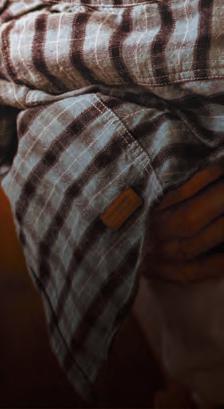

You can count on us for all your sleep health needs.
Our services and offerings


•In home consultations
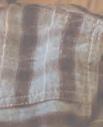
•Flexible CPAP trial programs

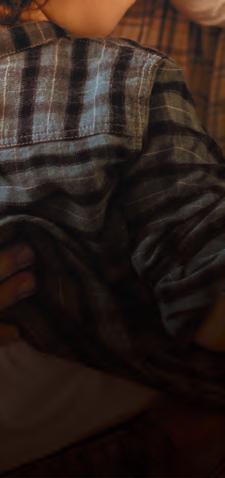
•The latest range of CPAP devices and masks
•Guided equipment setup and fitting
•Ongoing customer care and spare parts
•24/7 phone support and guidance 1800 625 088
Helping veterans get the most out of their CPAP therapy for over 7 years.
 - Sarah Hicks DVA Account Manager
- Sarah Hicks DVA Account Manager

If you wish to learn more about CPAP therapy or sleep health in general contact your local ResMed DVA Authorised Dealer: 02 4077 3889 02 4472 8410
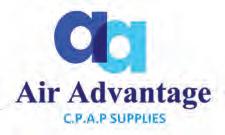
ANZAC DAY
How sub-Branches are engaging veterans and the local community ahead of ANZAC Day.
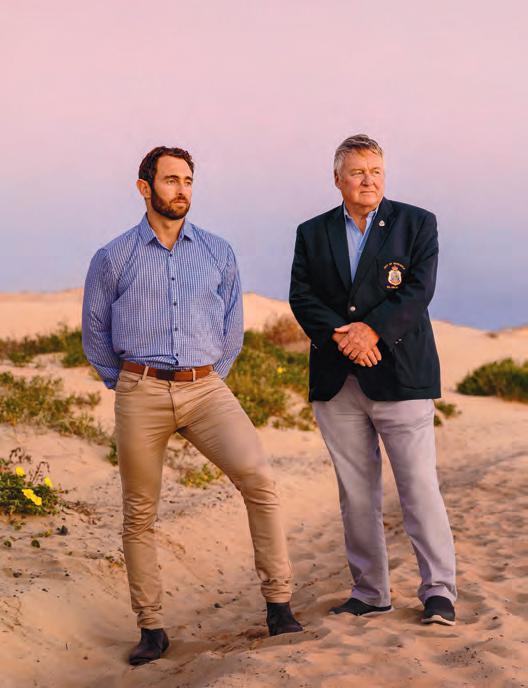
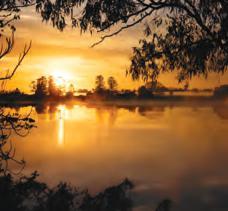
MEMBERSHIP
How a focus on inclusion is guiding a strategic shift at the Grafton RSL sub-Branch.
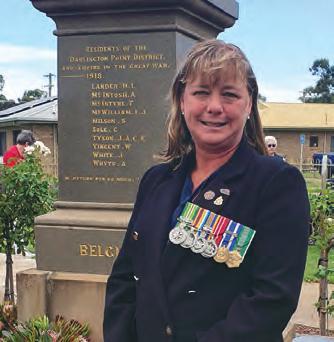

06 RSL NSW NEWS Cumberland RSL subBranch’s $2 million donation, opening the Nowra Veteran Wellbeing Centre, ANZAC Day and more.
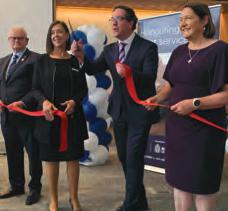
33
SUB-BRANCH NEWS Events and stories from sub-Branches and their members across the state.

REGULARS
04 WELCOME President Ray James and CEO Jon Black on upcoming elections, sub-Branch incorporation, Aqua Rugby and more.
38 LAST POST
42 SNAPSHOT Aqua Rugby
On the afternoon of Remembrance Day last year, I watched rugby players from the Navy and Army, both current and former service members, in an exhibition match out on the water at Manly.
Some of these players were RSL NSW members, across both the veteran and current serving cohort, and some more involved in their sub-Branches than others.
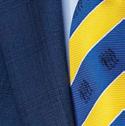
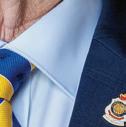
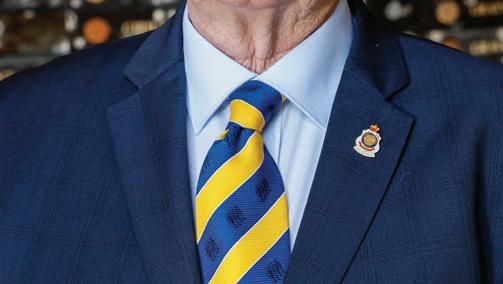

Watching them warm up, chat and connect, I was reminded of my own days playing rugby with the Navy — of the easy camaraderie that comes with immediate recognition. I was also reminded of my own varying levels of involvement in the RSL, my sub-Branch and the state Branch over the decades.
For the first 20 or so years of my sub-Branch membership, I wasn’t one of the ‘involved and active’ members, wasn’t engaged in the sub-Branch executive or the workings of the organisation. If I’d been one of those rugby players at that Remembrance Day event, the President wouldn’t have been able to pick whether I was a member or not.
This mirrors behaviour we’re seeing among younger members now. Last year, more than 2,000 new members joined us, but we can’t expect them all to immediately raise their hands for executive roles.
Our job is to welcome them and welcome any assistance they have the time to provide, and to



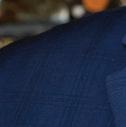
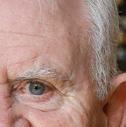
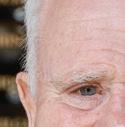






ensure they are receiving any support they require. It’s to identify the future leaders, to listen when they tell us they have the potential or the desire to lead, and to mentor and prepare them to do so. It’s to strengthen the League so that, when they are ready, we can hand over a great organisation.
It’s also our role, as the older guardians of the League, to ensure that when a young veteran who’s ready to lead does put their hand up, we make space for them.
I encourage the leadership in each sub-Branch around the state to look critically at your membership, and ensure you are creating space for future leaders and helping them to develop.
After this critical evaluation, ANZAC Day commemorations are an excellent opportunity to identify the younger veterans in your local area who may help you bridge any gaps. Introduce yourself, introduce other members from your sub-Branch, and invite the veterans and their families along to an upcoming social activity.
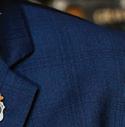
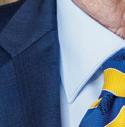

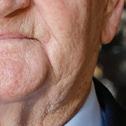
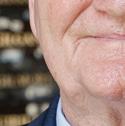


As we move towards state Branch elections, I also encourage older members to nominate and support the future leaders in our ranks, and younger veterans who are ready to lead to consider standing for election.

“It’s our role, as the older guardians of the League, to ensure that when a young veteran who’s ready to lead does put their hand up, we make space for them … Ensure you are creating space for the future leaders and helping them to develop.”
RAY JAMES OAM PRESIDENT, RSL NSW


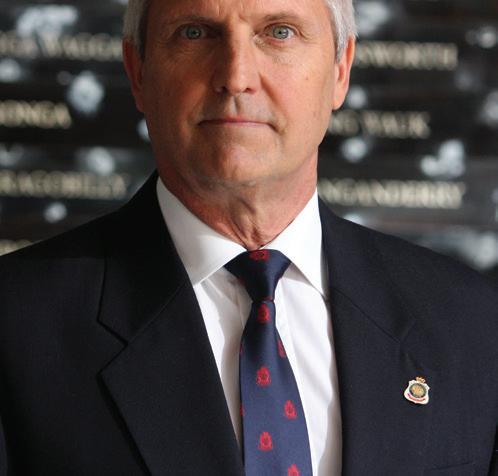
Thank you to the many members who have provided positive feedback on the RSL NSW Strategic Plan 2021-26 initiatives that are already making an impact at their sub-Branches, including the Member Recruitment Toolkit, the Veterans’ Catalogue, the Compliance Annual Report and the Sport and Recreation Program, the last of which is being implemented across the state this year.
While there is more to do to achieve our vision, there is momentum across the state as members see the value in attracting new members and delivering on our charitable purpose by working together to provide services and support to veterans and their families.
I encourage all veterans to download the Veterans’ Catalogue app to explore the range of services available in your area. Like the RSL NSW website, the app relies on subBranches updating their contact
details in the sub-Branch Portal so that veterans can find services and support in their community.
I have received several enquiries regarding sub-Branch incorporation. The decision to incorporate as a company limited by guarantee lies with subBranches, with RSL NSW Board approval. By way of guidance, last year the Board approved a model Constitution, which is housed on the RSL NSW website and sub-Branch Portal.
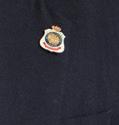
Several sub-Branches are still seeking to incorporate as an association rather than as a company. While the Board is still open to considering this, the rationale for incorporating as a company has not changed.
If you have any questions regarding Strategic Plan initiatives, please contact support@rslnsw.org.au or call 1300 679 775.
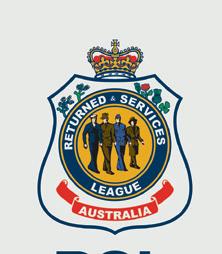
ANZAC House
Suite 11.02 Level 11, 175 Pitt St, Sydney, NSW 2000
Phone (02) 9264 8188

Email support@rslnsw.org.au
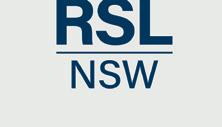
Web www.rslnsw.org.au
President Ray James


Chief Executive O cer
Jon Black
State Secretary

Je O’Brien
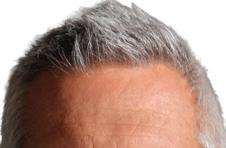
Publishing Director

Jelena Li
Managing Editor
Hallie Donkin
Editor
Lachlan Haycock
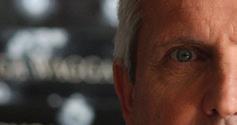
Creative Director
Gareth Allsopp
Senior Designer
Fiona Robinson
Integrated Producer
Lisa Galvan
Cover photography
Max Mason-Hubers
Advertising Manager
Tommy Murphy +61 2 9556 9145
tommy@mahlab.co
Advertising Operations Executive
William Ryan 0412 747 323 william.ryan@mahlab.co
Reveille is published by the New South Wales Branch of the RSL in association with Mahlab. Everything in this magazine is copyright and may not be reproduced unless written permission is granted by RSL NSW prior to its publication date. All rights reserved © copyright by RSL NSW All contributions are welcome; please contact news@rslnsw.org.au. All care will be taken with material but no responsibility is assumed or accepted by the publisher or RSL NSW for loss or damage. All opinions expressed in Reveille are not necessarily those of the publisher or RSL NSW
Anyone who has served in the Australian Defence Force (ADF) is eligible to participate in the March. Veterans’ descendants are invited to march with a unit formation as carers (maximum of one carer per marching veteran), banner parties or flag carriers.

All other descendants are invited to march within the descendants contingent. One descendant of a deceased veteran may honour their relative’s service in the march and may wear their medals on the right breast.
The march is not a parade — no vehicle, animal (except registered service animals), weaponry, memorabilia (including historic uniforms) or photographs may be included.
Veterans should assemble with one of the units of which they were or are a member. The choice of where to march is a personal one, however those who served together should march together as an act of remembrance and mateship.
Formations of more than eight should march as close to eight abreast as practicable.
Units should form up as follows:
1. Leader

2. Banner party
3. Veterans
4. Carers
The march is three hours long. Veterans who may not cover the whole distance on foot are encouraged to position themselves at the side of their formation so they can fall out independently and proceed to an exit point.
Veterans are entitled to free public transport on ANZAC Day.
The NSW Taxi Council has generously offered to place vehicles and drivers at RSL NSW’s disposal for the transport of blind or disabled ex-servicemen and women through the march. For bookings, please contact the NSW Taxi Council on 02 8339 4644 before 6 April.
The march will be televised on ABC TV and can be streamed on iView after the event.
Find out more and download or request printed copies of route maps and other resources by using the QR code. You can also contact 1300 679 775.


18 JULY
Nominations open
15 AUGUST
Nominations close
12 SEPTEMBER
Voting begins
10 OCTOBER
Voting closes
19 OCTOBER





Successful candidates notified
25 OCTOBER
Directors take o ce
Have your say in the direction of RSL NSW by nominating for a Board position. Information about how to nominate will be published on the RSL NSW website.

















Tune in to RSL NSW’s upcoming virtual event, ‘Q&A: How RSL sub-Branches reach out to veterans and gain new members’ to hear from fellow veterans about how their sub-Branches are attracting new members — and then take those tips back to your own sub- Branch. The event will be held online on Thursday 30 March.

From the custom-built facility, RSL LifeCare and its partners are providing a range of health and wellbeing services for veterans, current serving Australian Defence Force members and their families.

A team from the centre also travels regularly to Goulburn, helping veterans throughout the region access wellbeing support.
Together with RSL LifeCare, RSL NSW is committed to expanding its network of Veterans’ and Families’ Hubs working with local communities and other ex-service organisations to offer support and services to veterans and their families, which is a key initiative of the RSL NSW Strategic Plan 2021-26.

The centre has received funding from the Australian Government’s $43.2 million investment in a network of Veterans’ and Families’ Hubs, formerly known as Veteran Wellbeing Centres.

RSL NSW and RSL LifeCare are in the process

of applying for further funding from the Australian Government to establish four more hubs, one each in Queanbeyan, the Hunter Region, the Hawkesbury Region and Tweed/Far North Coast. These hubs will provide localised support and services to the community, working in conjunction with other local ESOs such as Soldier On and Open Arms, while also acting as a hub for a wider network of support. All RSL sub-Branches will be able to access services, call in for assistance, and refer veterans to the hubs regardless of their location.
TAKE A VIRTUAL TOUR. Use the QR code to explore the custom-built Nowra facility for veterans and their families.
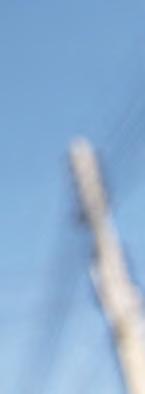

The Cumberland RSL subBranch committee and trustees agreed to submit to the membership a plan to fund the operational requirements of the Strategic Plan via a direct $2 million donation.
Their aim was to support RSL NSW into the future and provide the organisation with certainty in planning, development and implementation of the Strategic Plan.
“We prepared an information sheet outlining the pros and cons of donating such a large amount of money to present to a members’ meeting, with the view that the Cumberland RSL sub-Branch had the opportunity to be seen as a leader and that this may encourage other sub-Branches to possibly follow suit,” said Paul Hughes, Trustee and former Treasurer of the sub-Branch.
RSL NSW CFO Nicole Hasrouni said the Cumberland sub-Branch executive team has taken the initiative to better understand the Strategic Plan and how their
sub-Branch can be involved in that positive change.
“The donation shows leadership and trust in the collaborative relationship that has been established between sub-Branches and ANZAC House,” she said.
“The Cumberland sub-Branch recognised that it was able to make a financial contribution to the future of the organisation, which would help RSL NSW to deliver services beyond their
community without detracting from the sub-Branch’s ability to continue funding local initiatives — thereby supporting RSL NSW’s charitable purpose.


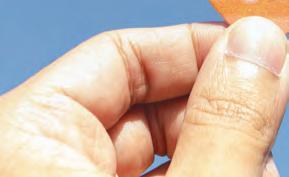
“The Veteran Support Fund is there for sub-Branches to donate to. They can elect to fund an initiative that’s meaningful to their members. In this instance, it was supporting the Strategic Plan, because the Cumberland sub-Branch wanted to see the organisation remain viable into the future.”
For Hughes, the decision whether to donate was straightforward.
“No matter how small your donation, it’s still a significant contribution in support of the Strategic Plan,” he said.


















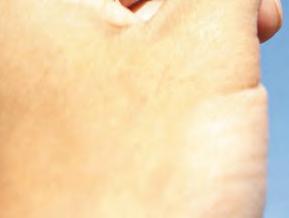



CONTRIBUTE TO THE CAUSE. Sub-Branches looking to support RSL NSW’s charitable purpose can make a donation to the Veteran Support Fund.

“No matter how small your donation, it’s still a significant contribution in support of the Strategic Plan.”
— Paul HughesThe Cumberland RSL sub-Branch is committed to supporting the future of RSL NSW. As announced at RSL NSW Congress last November, the sub-Branch has donated $2 million to the Veteran Support Fund in support of the implementation of the RSL NSW Strategic Plan 2021-2026.




Ian Marsh, President of the Gulgong RSL sub-Branch, knows the challenges of supporting veterans in rural areas. But the tide began to turn when Mick Morrissey, RSL NSW District Support Officer, came to town.

After transitioning out of Defence, Mick Morrissey worked as a Member Support Coordinator for the Army. He immediately realised his future lay in looking after the wellbeing of veterans. He’s now an RSL NSW District Support O cer, a role which is an intitiative of the RSL NSW Strategic Plan 2021-26.
About four years after transitioning out of the Army, having served for 20 years, including in East Timor and Somalia, I had a call from an organisation in Canberra. They were putting together an Army unit that existed to look after injured soldiers.
I started out as a Member Support Coordinator based
in Melbourne. I’d look after their welfare, make sure their families could get down to see them, organise accommodation and transport, that type of thing.
interested in applying for with RSL NSW, a District Support O cer role as part of a pilot for District Support O cer positions across the state.
I now look after two districts, the Western and Riverina Districts. It’s a huge area, but it’s great to get out there and make sure that if people have any questions, they know who to talk to. It’s important that we have a good level of rapport.
The District Support O cer role is all about assisting sub-Branches with their administrative duties and keeping them up to date.
When I met Ian and his team at Gulgong RSL sub-Branch, I realised immediately how committed they are. And I think that first visit helped, because it let them know that those at ANZAC House know and care about them. The fact that RSL NSW had put someone in the area was a positive.
Twelve months ago, my wife and I moved to Deniliquin. I popped into the local RSL sub-Branch and told them I was a DVA Advocate. The secretary, John Harris, told me there was a job I might be »
I’m inspired by the role because I love helping veterans. And the people in sub-Branches, like Ian and his team, it’s just a pleasure to be among them.

“When I met Ian and his team at Gulgong RSL sub-Branch, I realised immediately how committed they are. And I think that first visit helped, because it let them know that those at ANZAC House know and care about them.” — Mick Morrissey


Ian Marsh is following in his father’s footsteps as President and long-term member of the Gulgong RSL sub-Branch. He become President in October 2021, and is currently a colonel in the Army Reserve.

Community, and particularly a culture of inclusion, is very important to us. We’ve more than doubled in size in the past 12 months — we now have almost 60 members. It doesn’t sound like much compared to city sub-Branches, but our members can have a profound e ect in a small community like Gulgong. We’re pretty good at things like getting Veteran White Cards sorted and looking after service-related injuries. But we’ve needed help with the more complex administrative tasks. That’s where Mick has been excellent, and the timing of his role has been good for us.
All of the current sub-Branch executives have recently filled casual vacancies — including the Treasurer, the Secretary and myself. We have no preconceived ideas of how a sub-Branch should
run, so this has allowed us to develop a first-principles approach, with a sharp focus on charitable purpose to support veterans and their families.
We’re working on understanding how we best channel our e orts and decisions to ensure our purpose remains pure, and Mick is an important ingredient in our recipe for success. He’s very good at developing relationships with sub-Branches. He’s clearly very keen to engage.
As our RSL NSW District Support O cer, Mick is the first port of call for members’ enquiries across the Western and Riverina Districts. He provides guidance on membership issues and wellbeing support, and coordinates between the District Council and sub-Branches to increase collaboration.
As an added bonus, Mick’s also a Level 3 DVA Advocate, which provides even more support to our community.
The District Support
O cer role is currently in a 12-month pilot phase to assess demand across districts. The role is the result of priority initiative 5.9 of the RSL NSW Strategic Plan 2021-26, which aims to establish a cadre of full-time sta to support and train volunteers in sub-Branches to build the capability of RSL NSW. The District Support O cer works with the District Council to provide a coordinating function between sub-Branches and assist their support of RSL NSW members in the region. With a District Support O cer in every district, sub-Branches will be more e ective in their communities and when meeting their compliance regulations.
The Battle that Saved Australia. By early 1942, Japan needed a base in the South Pacific to counter the Allied defence. The invasion of Australia was a real possibility. Along Papua New Guinea’s Kokoda Track, our diggers fought a valiant campaign to hold back the enemy and protect home. A new crown coin has been struck to honour the men whose bravery ensured our freedom. Struck to a high specification, only 9,999 numbered issues will ever be minted.
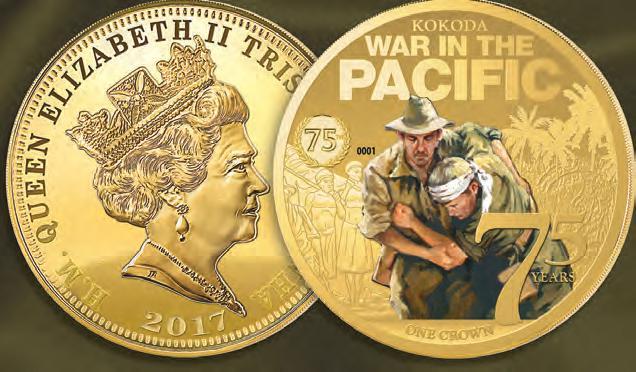
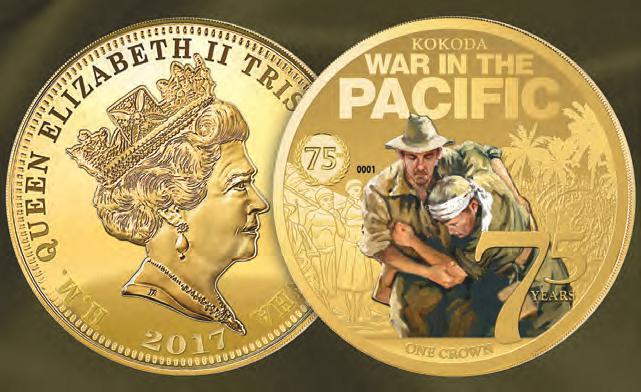
The earliest applications will receive the lowest edition numbers. For this reason applications will be processed on a strictly first-come, first-served basis and are limited to one per Australian household. Order the “Battle of the Kokoda Track Golden Crown” now for just $39.99 (plus $9.99 postage and handling). By ordering now, you will have priority access to further coins in the collection which are available for $89.99 (plus $9.99 P&H) and will be shipped to you at regular intervals. You’re under no obligation. Collect as many as you wish and you may cancel at any time. All purchases are covered by The Bradford Exchange 14-Day Money-Back Guarantee.
SEND



$39.99 + $9.99 P&H
The fastest way to own this touching tribute is to order online at www.bradford.com.au/military or call on (02) 9841 3311 alternatively complete and post the application form below.
Each crown coin is individually numbered, meaning no two are the same. Yours is the one and only issue of its kind – the ultimate collector’s item
Fully layered in pure 24-carat gold
As befitting an event of such importance, the coin is fully layered with pure 24-carat gold


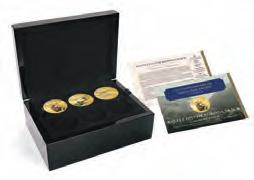



Struck to match highest quality Proof finish


Expertly struck not once but twice onto a specially prepared mirrored surface reserved only for the most important commemorative issues
Each crown is accompanied by a Certificate of Authenticity, which is supplied, free of charge. An elegant presentation case to house the golden crowns will accompany a future delivery and is supplied to you FREE, as part of your collection.
As the RSL NSW Liaison Officer at the National Centre for Veterans’ Healthcare (NCVH) at Concord Hospital, Navy veteran Bronte Pollard assists with connecting veterans to NCVH services, which include pain management, drug and alcohol health, psychiatry and rehabilitation medicine.
Importantly, he also liaises with RSL sub-Branches and RSL LifeCare Veteran Services to ensure veterans are supported in their own communities upon leaving the centre.
The Liaison Officer role, an initiative of the RSL NSW Strategic Plan 2021-26, was at first an unpaid position. Now, with support from the RSL NSW Veteran Support Fund (VSF), it has become a paid role — a critical step in recognising the value such a role can play in veterans’ support and a reflection of RSL NSW’s commitment to servicing and supporting veterans receiving care at the NCVH.

“What I’m so happy about it being a paid role is the acknowledgement that the role is providing for people,” says Pollard, who is also Chair of
the RSL NSW Young Veterans Committee. “That there’s enough worth in the role that it should be permanent and should be paid. My goal is for the role to become selfsustaining in the future.”
The VSF seeks to track and connect statewide sub-Branch contributions to causes that support veterans and their families, ensuring that every dollar donated is recognised as part of RSL NSW’s work to support veterans and their families across the state. Sub-Branches can make a voluntary contribution to the VSF, which will help to deliver the initiatives of the Strategic Plan.
How RSL NSW Liaison Officer Bronte Pollard helps connect veterans with services and support at the National Centre for Veterans’ Healthcare and at their local sub-Branch.Story Lachlan Haycock
Pollard describes the Liaison Officer role as a bridge between the veteran and NCVH services and support — support which should not disappear upon their return home. That’s where subBranches have a role to play.
“The veteran may not have had any exposure to the RSL NSW network, or they may not have had a positive experience when they did reach out locally,” explains Pollard.“It’s about giving them confidence and guiding them through. I also explain to the sub-Branch what their situation is and what sort of assistance the veteran needs.”
Although he is cautious to reveal too many details owing to patient confidentiality, Bronte recalls multiple examples of veterans he’s helped to connect with a sub-Branch.
“There was a veteran on the South Coast who was able to join their local sub-Branch and build a social connection,” he says.
“There was a veteran living in a small rural town out west who had no connection to RSL NSW and was in need of domestic assistance. By connecting with the local sub-Branch, I was able to understand their capabilities and hand the veteran over to them for further support.
Since it was established, the National Centre for Veterans’ Healthcare has helped over

350 VETERANS
Of those, RSL NSW Liaison Officer Bronte Pollard has in some way assisted approximately
130 VETERANS
“There’s enough worth in the role that it should be permanent and should be paid. My goal is for the role to become self-sustaining in the future.”
— Bronte Pollard
“I also assisted a veteran with the process of obtaining a psychiatric assistance dog. He’s now just waiting to be matched with the right one. It was a good learning experience for me to go through that process from beginning to end, not to mention achieving a great outcome.”
Pollard’s experiences liaising with sub-Branches may vary, but the results are always worthwhile.
“A lot of sub-Branches want to help, but some aren’t quite sure how,” he says. “So it’s great being able to o er them guidance and educate them about NCVH services and about my role. Not everyone is always singing from the same hymn sheet, but
The NCVH in Concord is a comprehensive care centre o ering specialist physical and mental healthcare services for veterans.
overall the response from subBranches has been great.”

Bronte has been pleasantly surprised by the amount of face-to-face contact he’s been able to provide to veterans seeking treatment at the NCVH.
“One of the things I hadn’t considered when we were planning what the Liaison O cer role would provide was the amount of peerto-peer support,” he says. “There are some veterans I don’t really do anything for other than just have a chat over co ee to help settle the nerves. It’s about them having that
person they can feel comfortable with, who speaks their language and has walked in their shoes. This work is good for the soul.”
Ultimately, he credits the hardworking NCVH team as the driving force behind the quality of service provided to patients and guests of Fussell House.
“I’m incredibly honoured to work with the most amazing team of health professionals,” says Pollard. “As Liaison O cer, you have to be careful to avoid becoming a backyard therapist or clinician, but you do get to understand how the health system works.
“There are a lot wiser people out there than me, but getting to see how they interact with clients helps me provide more informed support for veterans.”
Find out more about the NCVH and access referral forms on the RSL NSW website.


A core aim of the National Centre for Veterans’ Healthcare (NCVH) is that veterans seeking treatment are not limited by geography.

“I hear people in the RSL NSW network say there are no services for veterans in the bush,” says Pollard. “I can understand that; the majority of veterans do come from the Sydney metropolitan area, because they have ease of access.
“But there’s quite a number that come in from regional areas. The onsite accommodation at the NCVH, transport assistance, and the relationship that case managers build with veterans, remove as many barriers as possible for veterans from the bush to obtain services.”
These services are complemented by those provided by RSL NSW’s partner charity RSL LifeCare Veteran Services, which are available from anywhere in the state. Pollard recalls an example of NCVH services making a di erence in the life of veterans living in the foothills of the Snowy Mountains: fellow Navy veterans and lifelong partners Zita and Wayne Vafiopulous, who stayed at Fussell House
while they both received treatment at the NCVH.

Pollard had COVID on the weekend Zita and Wayne were in Sydney, so the pair was welcomed by David Clarke, Honorary Secretary of Five Dock RSL sub-Branch. Clarke showed them about the city, visiting North Head in Manly and the Penrith RSL sub-Branch, before returning them to Fussell House.

“I was just talking to Zita this morning,” says Pollard. “We were reflecting on her husband’s journey. She said that being able to come up to Sydney and access the tests and clinicians at the NCVH was life-changing for Wayne’s conditions.
“That’s a really important message that I’d like all of our sub-Branches to know: it doesn’t matter if you’re in the city or in the bush. The NCVH o ers a great service, and for those from the bush even more so. There really are no barriers and it’s a service that fills that gap for people needing medical treatment.”
“The NCVH offers a great service, and for those from the bush even more so.”
— Bronte Pollard


Fifty years since the end of Australia’s involvement in the Vietnam War, we look into the legacy of this unforgettable conflict.
Story Chris SheedyKen Fayle, Vietnam veteran and President of the City of Newcastle RSL sub-Branch, comes from a long line of Australian Defence Force members. Both of his grandfathers served in World War I. His mother was a radio operator in Australia during World War II. His father spent those years in Papua New Guinea with the RAAF.
“To the day my father died, he refused point-blank to speak of his experiences, which obviously weren’t pleasant,” says Fayle. “He came back at the end of the war and spent three months in Concord Repatriation Hospital with malaria, and suffered malarial episodes for the next 20 years plus.”
Fayle wonders how different his parents’ lives would have been if they’d had access to counselling.
“Their marriage lasted about 24 years, then fell apart,” he says. “I look back at that time and I realise that we Vietnam veterans fought long and hard for a counselling service.
“Then I wonder how many veterans of World War II or Korea could have kept their marriages intact or had a better life if they had access to this wonderful thing called a counselling service.”

“I refuse to walk backwards into the future gazing longingly at the past.” — Ken Fayle
The condition known as posttraumatic stress disorder was only recognised after the war in Vietnam. That and other advancements in the field of psychology resulted in much improved services for veterans.




Much of Professor Lynne McCormack’s professional career has been spent as a clinical psychologist and researcher of human behaviour.


Prior to the Vietnam War, McCormack was a music teacher, a job that led to her being a member of musical bands. In 1969 and 1971, she did two tours of Vietnam — a total of around 13 months — to entertain troops.
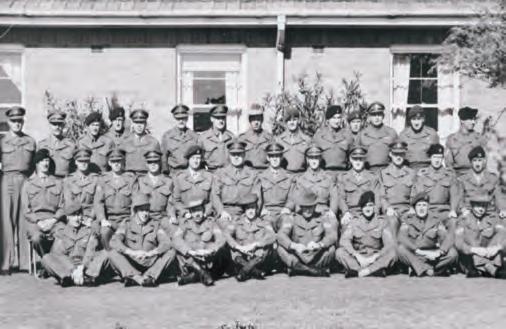
“It was out of that youthful experience that I decided that I had to do something di erent with my life, something that contributed back to society,” says McCormack, now a professor in the School of Psychological Sciences at the University of Newcastle.

JUL 1962
Australian Army Training Team Vietnam (AATTV) arrives in South Vietnam.
25 APR 1972
600 Vietnam veterans lead the ANZAC Day march through Sydney — their first march.

“A lot of people actually redefine their lives after having suffered this horrendous distress.”
—
Professor Lynne McCormack
“So, I came home and studied nursing, then did midwifery and cardiothoracic intensive care. I worked for about 10 years as a nurse, but I was really very interested in people’s individual stories, how people make sense of the world as they move forward from physically or psychologically traumatic events. I decided I wanted to become a psychologist.”
Around the same time that McCormack was completing her psychology training, Vietnam veterans were beginning to speak up about their experiences. As she had spent time with the troops in Vietnam during the war, it became an area in which McCormack developed enormous interest.
As she worked with veterans, particularly in the Hunter region, she began to learn of other psychological responses that came out of the war environment.
“It wasn’t just about post-traumatic stress,” says McCormack. “There are a whole lot of other responses we’re now familiar with.
“One of them is moral injury, particularly for young people who are still trying to form their own values of being an adult in the world, being asked to do things or witnessing things that conflict with their own developing values.”
Importantly, says McCormack, the experience of war continues to impact throughout an individual’s life. In time, combat distress can germinate post-traumatic growth.
“In the 1990s, we started to realise that despite the risk of psychological distress from exposure to horrendous, combatrelated events, for many, the e ort to make sense of that distress became a springboard for personal growth,” she says.
“We started to explore how people not only recover but grow from their trauma.”
This is a vital point to acknowledge, says Dr Rodger Shanahan, a Nonresident Fellow in the West Asia Program at the Lowy Institute, and a 26-

year Army veteran. Shanahan’s record includes operational service in Afghanistan, with the UN in Lebanon and Syria, and with the Parachute Battalion Group in East Timor.
“I did write something on this topic, about the idea of ideal veteran and the fact that we have to be careful about deifying veterans too much,” says Shanahan, also a former director of the Army’s Land Warfare Studies Centre.
“Every paramedic sees much worse trauma on a much more regular basis than a veteran, for instance. Police o cers are the same. So I think we have to be very careful about how we look at veterans and assumptions we make about how many veterans actually have issues.
“I have many ex-military friends, none of whom have any issues. A veteran is not automatically damaged.”



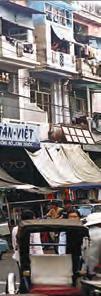



Constantly promoting the image of the darkly troubled »
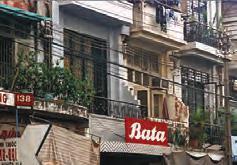
JUN 1973

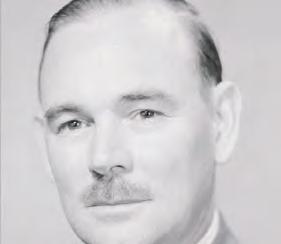
veteran, he says, when many people who are deployed do functional jobs that are only mildly di erent to the jobs they might do at home during times of peace, doesn’t help anybody. On the other hand, recognising that many simply get on with their lives and turn their experiences into a positive is of value to many in the veteran community.
“Many who go to war come home and realise that the change can be for the good,” says McCormack, who has had over 70 papers published in the areas of trauma and post-traumatic growth. “That knowledge has developed from the Vietnam experience.”
“It doesn’t mean there won’t be sadness, grief, disappointment and all of those factors that make us review how we view the world. But it does make a lot of people go,

‘Well, you know what? I’m going to take this and use it for good’.”






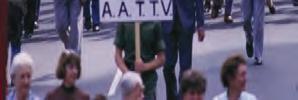
A unique psychological challenge in relation to Vietnam, says Shanahan, was the fact that it was a conflict that employed conscription. In fact, it was the last to do so in Australia.
“For a conscript in Vietnam, at the end of your tenure you were simply told to go back into civilian life,” says Shanahan. “That’s a completely unacceptable way to treat people. It’s di erent for full-time military people. They have a social contract with the government about their role which is implicit when they join, just like when people join other types of organisations.”


Following a dawn service in Martin Place, 22,000 Vietnam veterans march in the Australian Vietnam Forces Welcome Home Parade. Participants included veterans from New Zealand, South Korea, Vietnam and the USA.

Fayle was one such conscript. When he returned from Vietnam, like many others he knew, he had a job to go back to. He decided on a career change and moved on with his life, or so he thought. In Vietnam, Fayle had spent his time with the Royal Australian Engineers at the 1st Australian Logistical Support Group in Vung Tau. Having spent his time in the service at what he laughingly calls “the Bunnings of the Army”, he returned in 1971.
“Most of the things that take place in my life have taken place in Newcastle, so coming home for me wasn’t like being in Sydney, Brisbane or Melbourne, where you had the extremes of the anti-war sentiment,” says Fayle.
“We didn’t have marches through the streets or servicepeople getting o boats and getting paint thrown on them. If I experienced any negativity at all, it was generally, and surprisingly, when it came to going into clubs.”
After two years of service, having a haircut “about level with the top of your ears”, Fayle and his
3 OCT 1992
More than a year after the groundbreaking ceremony for its construction, the Australian Vietnam Forces National Memorial is unveiled on Canberra’s Anzac Parade.

“I have many ex-military friends, none of whom have any issues. A veteran is not automatically damaged.” — Dr Rodger Shanahan
18 AUG 2016
mates let their hair grow. When they tried to enter certain clubs, including RSL clubs, it wasn’t unusual to be told they couldn’t come in because of their hair.
“That created a lot of angst,” he says. “What compounded that angst is that the sub-Branches who were generally attached to the club had an attitude of, ‘Well, we can’t stop you applying to become a member, but we really don’t want you, because you haven’t been to a real war’.”
Fayle spent several years working hard and drinking even harder. Then he met his wife and realised he had to work at settling down. One method was via counselling. Another was by being part of a group of people who understood the unique challenges su ered by some veterans. This group originally was not RSL NSW, but instead the Vietnam Legion of Veterans.



“We eventually took up the positions on the board of the RSL sub-Branch years later, and the rest is history. If it hadn’t been for that,
18 AUG 2023
The Australian Government plans to mark the 50th anniversary of the end of Australia’s involvement in the Vietnam War with a nationally broadcast event at the Australian Vietnam Forces National Memorial in Canberra.
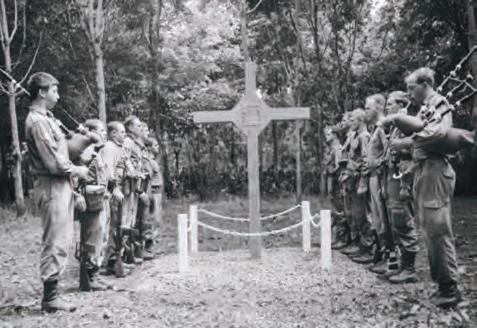
“I wonder how many veterans of World War II or Korea could have kept their marriages intact or had a better life if they had access to this wonderful thing called a counselling service.”
— Ken Fayle
the sub-Branch might have ended up having to amalgamate or fold.”
Today, of course, RSL NSW is supporting all veterans via mergers with such bodies as the Australian Legion of ExServicemen and Women, and welcomes amalgamations with other ESOs, to secure their futures. And the RSL sub-Branches are busy attracting and offering their services to a younger generation of veterans as it looks towards a future that will include the constant development and improvement of veteran services.

Over the last 50 years, a great deal has changed in terms of veteran care, much of this change driven by the Vietnam experience. But there is always more to do, says Fayle.
Luke Douglass spent 13 years in the ADF, including the last few years helping members with physical and psychological injuries to integrate into the workforce and into civilian life.

When his own time came to transition out in February 2022, he knew he had to do as much as possible in preparation.
“Still, that didn’t really prepare me, to be honest,” says Douglass, who now runs The Warrior Within Project.
Luke Douglass says ADF transition programs need to better marketed.
“It prepared me for things like how to get a Medicare card and how to make an appointment with a doctor, simple things that people have to navigate day to day. But the deeper side, about identity and community, was not addressed.
“The ADF is doing the right thing. It has programs in place for people who are transitioning, and those programs offer a lot of help. I just don’t believe they’re marketed the right way.”
Too many programs, according to Douglass, are stumbled upon instead of being actively introduced to the veteran.
From a personal point of view, he says, the DVA process has been “agonising”. But from a professional point of view, as he deals with the DVA to run his resilience and wellbeing program, the DVA experience has been excellent.
The needs of veterans have likely been the same throughout the ages, says Douglass. Those needs will vary dramatically from individual to individual. But as psychologists and others have improved their understanding of human behaviour, increasingly valuable and relevant services have been developed.
“In the past, we didn’t have the understanding of emotional intelligence ... of being able to regulate your own emotion,” he says. “It was more about just getting over it. That’s why, most of the time, veterans who were struggling chose to reach for a bottle.”
The counselling o erings that have been developed and introduced since Vietnam, says Fayle, are vitally important.
“Since Vietnam, the Defence Force deserves credit for recognising that they have to do some form of counselling, and for developing those services,” he says.
“But there is still a stigma, from the highest general to the youngest private, that if they’re seen to be seeking counselling, they’re weak. And if they’re seen to be weak, they cannot progress their career within Defence. The opposite should be the case.”
The Vietnam War has left a lasting legacy that has inspired excellence in human behavioural knowledge and in veterans’ services, and will continue to do so.
“I’ve got a personal philosophy: I refuse to walk backwards into the future gazing longingly at the past,” says Fayle. “If we can all continue to look for improvement, we’ll succeed in our mission.”
The City of Newcastle sub-Branch has been growing furiously over the past few decades, attracting veterans of all ages. How is such success achieved?
“First, the rule in our sub-Branch is, everybody’s welcome regardless of gender or age,” says subBranch President Ken Fayle. “And when you walk through the front door, you leave your rank and your ego outside. You’re now just Bob, Chris or Sandra.
“Next, whenever we have functions, partners are always invited. That is not negotiable. There is no exclusivity and no misogyny. In some other areas, when they hold a dinner, it’s for members only, not for partners. But often the partner has lived with that veteran for the last 30–40 years. Show them respect and invite them to dinner!
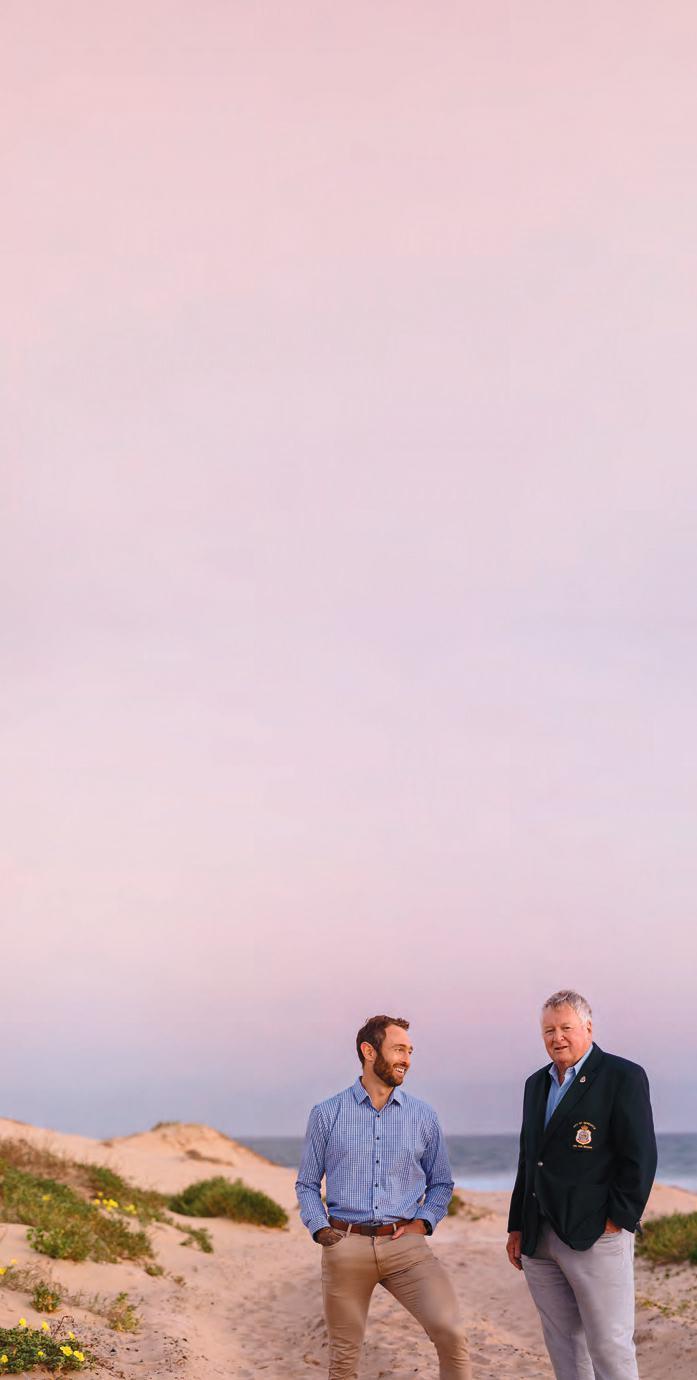
“Finally, I often ask new members why they joined our sub-Branch, especially when they live closer to another one. Generally, the one thing they say is that they can see our sub-Branch doing something.
“We’ve helped grow a dawn service from 600 people in 1999 to 57,000 people, and broadcast on the ABC, in 2019. We built a memorial for war widows. We have the military wives choir in our hall to practise every month, and we bought them a beautiful Yamaha electronic piano for when they perform concerts. New members see we’re doing things for their community, not just organising barbecues for the boys.”
Berdene Oxley-Boyd, member of Gri th RSL sub-Branch and the RSL NSW Young Veterans Committee
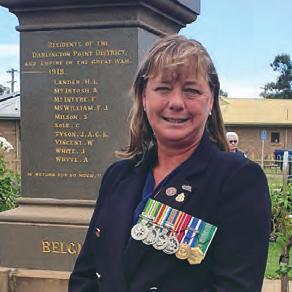

“Our sub-Branch facilitates a high school student-run ceremony at the Wollongong Cenotaph, and veterans also attend school assemblies in the lead-up to ANZAC Day. These activities stopped during the worst of the COVID pandemic, but we’ll be conducting both activities in 2023.”
TRY THIS
VISIT A LOCAL MEMORIAL Organise a tour of a local memorial or sub-Branch building for members of the wider community.
“Last year I was invited as a guest to a school assembly for their ANZAC Day service. A lot of schools reach out for someone from the sub-Branch to go and do a talk. And this year, our sub-Branch plans to involve local community groups such as the SES and Rural Fire Service.”

TRY THIS
Organise for sub-Branch members to visit classrooms for an in-person meet-and-greet where the students run a Q&A. Get creative with colouring sheet competitions or stencil kits.
ANZAC Day is an opportunity to commemorate veterans, support the community, and engage with schools and families. We asked four RSL NSW members how their sub-Branches plan to reach out ahead of ANZAC Day 2023.

“We have a full schedule of members who are asked to speak about ANZAC Day at schools, community groups and retirement homes. It keeps the legacy alive and, more importantly, it gets our younger sub-Branch members out there and talking with the community. It also allows school kids to connect with veterans and ask them questions.”
Organise a social meet-and-greet or sports event following the local march, and invite members of the local Defence base or Reserve unit as well as family members.

“Every year, we invite about 50 local schools — approximately 2,000 students and teachers — to a service at the Penrith Paceway. We organise the event, but the kids provide the MC, band and choir. Cadet units from the Army, Navy and Air Force provide the guard of honour and the catafalque party.”
BE THE STEWARDS OF CHANGE at your sub-Branch with the RSL NSW Member Recruitment Toolkit. Use it to identify yourself to, and strike up a conversation with, other veterans on ANZAC Day and encourage them to become members too.
A focus on inclusion, particularly of families and younger veterans, is guiding a powerful strategic shift at the Grafton RSL sub-Branch.
 Story Chris Sheedy
Story Chris Sheedy
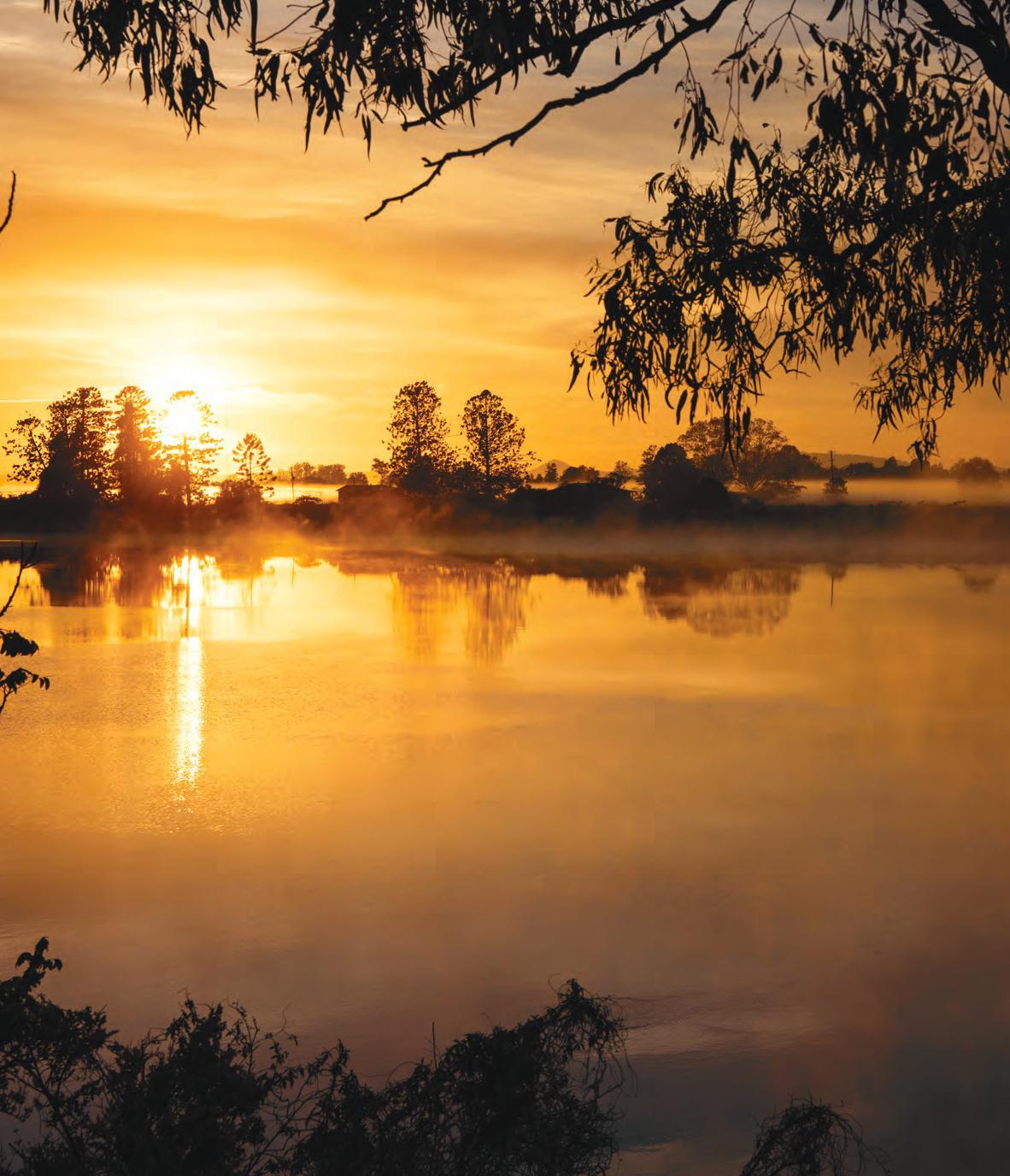
When Leith Basset transitioned out of Defence in 2013, he spent several years feeling confusion, anger and frustration. He’d damaged his spine during an accident in the Solomon Islands and suddenly found he was lacking a sense of community, identity and purpose as a veteran.
During that period of readjustment, Basset’s wife was his rock. She sought assistance, dealt with various authorities and stood by his side, no matter how his moods changed.
“I was having real anger issues. My wife said she felt she was walking on eggshells for three or four years,” says Basset, who is now President of the Grafton RSL sub-Branch.

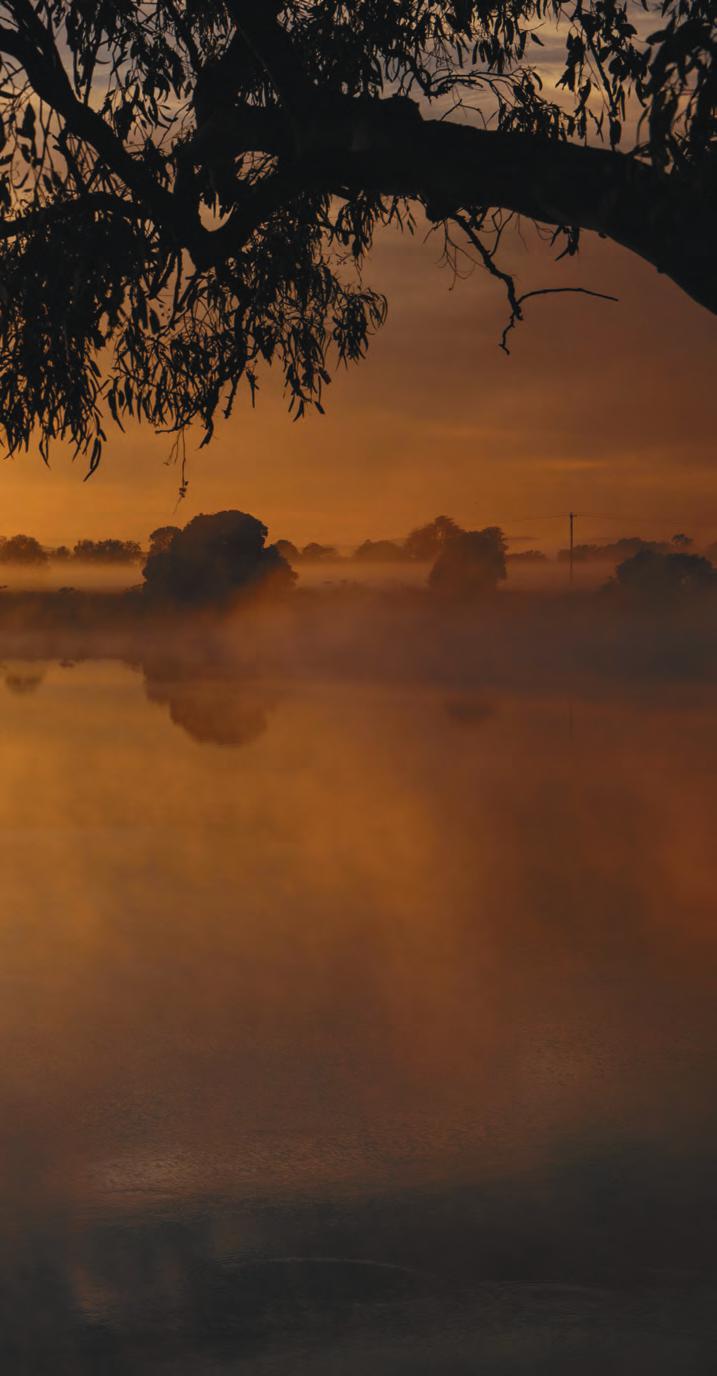
“I was lucky that she was just a brilliant woman. She’s gone through all the ups and downs with me. It would have been a lot worse without her support.”
That learning, the fact that family plays a vital role in transition, has strongly shaped the direction he’s now taking the sub-Branch. But despite his own experience and his relative youth — Basset is in his 40s — his most powerful realisation is that he doesn’t know enough.
“A major focus for us in 2023 is working out exactly what younger veterans want and need,” he says.
“We’re not assuming that we have the answer. We want to ask the younger veterans — we can’t just guess.”

Basset says the sub-Branch, currently consisting of around 200 members, also needs greater intelligence about the region, which includes Grafton, South Grafton, Ulmarra, Copmanhurst and more.
“We don’t necessarily know which veterans are in our area,” he says. “We need to know where they are and who they are, so we can reach out and tell them how we can help and, if they want, how they can get involved.”


Family must be a focus of everything the sub-Branch does, says Basset.
“Family is the most important and probably the most overlooked support mechanism there is,” he says. “As I said, my experience would have been much harder without my wife’s support. But when it comes to family members such as my wife, there’s not enough support for them.”
“Veterans can come into the sub-Branch and talk to other ex-servicepeople, and they all speak a common language — they all share a common understanding because they have been part of the Defence culture. But my wife didn’t have that option.
“I want to change that and work out ways we can provide better support for families. We encourage everyone to get their families involved. We’ll do that even more in the future.”

The plans for 2023 include social events such as open days, sausage sizzles, family days with jumping castles, and more.
“An ex-Navy veteran has just opened a Co ee Club that will host get-togethers, which the sub-Branch will support,” says Basset. “We’ll have BBQs and we’ll promote RSL NSW a lot more. We’ll make a lot more noise in the community and online.


“At the RSL NSW Congress, it was brought up that we have to promote more. Currently, we have a webpage, Facebook and Twitter. We now have a guy who was a computer guru in Defence, and he runs much of that for us. Technology, such as IT and social media, has been hard to keep up with. But we have to educate ourselves and use it as a tool.”
The sub-Branch is having a custom marquee, containing graphics that include contact details, made for use at community events.
The town’s Memorial Park is currently being redesigned, so the sub-Branch is involved in discussions with the local council about that and other matters.
It’s also involved with the Grafton Ngerrie Local Aboriginal Land Council, and even accommodated and fed Ben Ferris, the man who jogged from Perth to Byron Bay in 2022.
“We’ve branched out around who we’re in contact with and who we’re aligning with,” says Basset.
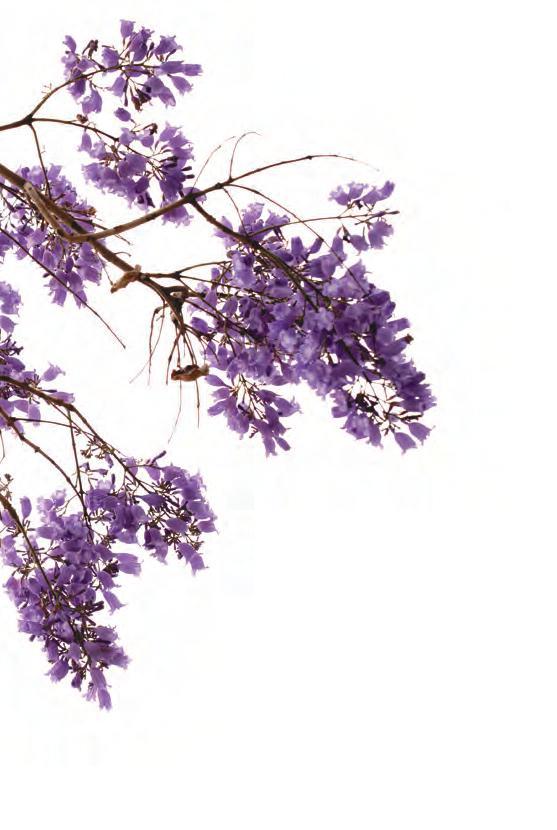
“We put Ben Ferris, the veteran who was running across Australia to raise awareness of and fundraise for mental health support, up in the sub-Branch and provided as much support as we could.”
“These are the things that we have to branch out and do, to change people’s perspective of the RSL. Surely, it’s our role to support him.”
No matter what has happened in the past, the only focus worth having is the future, says Basset.
“I have sat down with the sub-Branch secretary, Denis Benfield, who is a great inspiration, and we have focused on what we can do for the most positive e ect,” he says.
“Of course, helping veterans is our main focus. But to do that, we need to help their families by creating a support mechanism specifically for them.”
RSL LifeCare is of vital importance to the sub-Branch and its members, says Basset. In cities, where there are numerous levels of support as well as ESOs and various other mechanisms, veterans sometimes have a choice of support. But in rural areas, very little is available, so RSL LifeCare really can be a life-saver.
While the handover of the RSL reins between generations has sometimes left a little to be desired, particularly around attitudes towards specific conflicts
and towards service itself, that is in the past, says Basset. Discussion and argument around issues from the past are a waste of valuable time, he believes.
“We’ve got to move on from that,” he says. “We’ve got to be smarter in the way that we approach our role, and in the way we approach the younger veterans to get them involved.
“We need to show that we are up with the times, that we are supportive and relevant, and that we’re o ering veterans and their families what they need. And we need to be involved with current servicepeople, so when they need advocacy, they know exactly where to find it.”
Mostly though, the sub-Branch needs to know what it doesn’t know. Basset is in the process of filling that knowledge gap by speaking as often as he can with younger veterans.
“We’ve got our focus set,” he says. “As long as we don’t lose that focus, we’ll play a positive role in the lives of veterans and their families for decades to come.”
“We don’t necessarily know which veterans are in our area. We need to know where they are and who they are, so we can reach out and tell them how we can help and, if they want, how they can get involved.”
— Leith Basset




Commemoration. Mateship. Advocacy.

As vital now as they were in 1916.
As important now as they will be in 2036.
The future of RSL NSW is not assured. Mobilising the combined resources of sub-Branches is critical to supporting veterans and their families, and ensuring the RSL brand is recognised and respected by the whole community, so the community knows who we are, what we stand for and what we do.


That’s why we have launched the RSL NSW Strategic Plan which includes a new funding model for the future. Colloquially called the ‘Pooled’ funding model, it has two parts: the Aggregated Investment Management Service and the Veteran Support Fund.



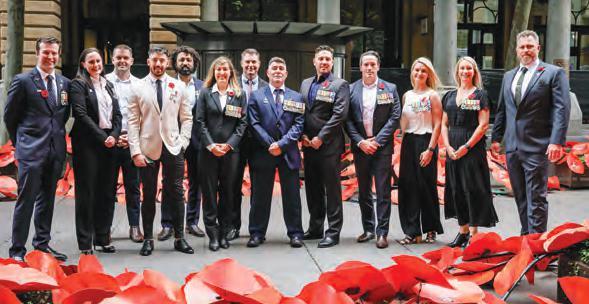
David acted in an advisory capacity to the selection process of the competitive market tender. He provided insight into the assessment of risk, governance, and other qualitative factors on the selection of the preferred investment manager for RSL NSW and its sub-Branches.



“My Future Fund experience showed me the value of alignment of purpose with the pattern of investing and spending to achieve an organisation’s objective.”
DavidMurray AO, is the Inaugural Chair of the Australian Government Future Fund Board of Guardians.
OLD BAR BEACH

“What a great start to the year!” was the verdict on Facebook after Old Bar Beach RSL sub-Branch’s recent sport and recreation day, which was held at the Tav Old Bar.
As the RSL NSW Sport and Recreation Program is rolled out across the state, the sub-Branch has continued to organise family-friendly recreational activities to support the physical and mental wellbeing of members.

Approximately 40 attendees enjoyed knockout competitions of bocce and cornhole in high spirits.
In the spirit of collaboration and cooperation between sub-Branches, members of the Wingham RSL subBranch were also invited to attend the event.

Damien Gow and Suzee Kerrsmith won the bocce contest, with Mike Doyle and Ron Irwin as runners-up, Meanwhile, Christine White took home the top gong in the cornhole competition, while Damien Gow was awarded runner-up.
Members of Old Bar Beach and Wingham RSL sub-Branches gather for a fun day in the sun.
Toukley RSL sub-Branch President Bob Wilson with Thomas Hobbs.

In coastal Toukley, longtime member Thomas Hobbs was recognised for his service with Life Membership of RSL NSW. Hobbs was presented with his certificate by Toukley RSL sub-Branch President Bob Wilson.

RSL sub-Branches around the state recently celebrated the dedication of members who have devoted 50 years of service to the League and the veteran community.
In just two years, the City of Wollongong RSL sub-Branch has awarded no less than six 50-year membership certificates to its members.

Joining WWII veteran John Boyd and Vietnam veterans Brian Clark, Allan Butler, John Fairley and Will Simpson was Ian Callaway.
Callaway, who has already been a Life Member of RSL NSW for the past 12 years, served with the 1st Australian Reinforcement Unit in Vietnam from 1970 to 1971.

He joined RSL NSW upon his return and later joined

the committee of the Cooma/Monaro RSL sub-Branch before transferring to the nowdefunct Port Kembla RSL sub-Branch. He also previously served as the Honorary Secretary and Treasurer of the Illawarra ANZAC Day March Committee for 17 years.
The number of subBranch members recognised for half a century of service is, in the words of sub-Branch Secretary and Treasurer Peter Lipscomb, “a pretty special occurrence”.
It was a momentous day for Wauchope RSL sub-Branch when three members, each a Vietnam veteran, were awarded certificates marking 50 years of membership with RSL NSW.

Ray Knapp served with 5RAR from 1969 to 1970. Bill Starrenburg served with the Royal Australian Electrical and Mechanical Engineers from 1967 to 1968. Terry Clarke served in the Navy from 1966 to 1976, including on HMAS Vendetta and for four trips to Vietnam aboard HMAS Sydney.
R: Wauchope RSL subBranch VicePresident


Bill Wagner presents Terry Clarke with his award.
Murwillumbah RSL subBranch was another sub-Branch that recently recognised extensive and dedicated service to the League, with three of its
members being presented with 50-year service certificates.
David White, Ian Campbell and John Smith were congratulated by Derek Sims, a Life Member of RSL NSW, during the ceremony and posed for photos afterwards.
L–R: Murwillumbah RSL sub-Branch members David White, Derek Sims, Ian Campbell and John Smith.
A recent meeting at the Bomaderry RSL sub-Branch was a special occasion for David Laird, who was presented with a certificate for 50 years of membership by sub-Branch President Bob Madden.



Among the valuable work done by RSL NSW Auxiliaries is crafting handmade quilts, known as Thank You for Your Service quilts, to recognise the dedication of past and present serving members.
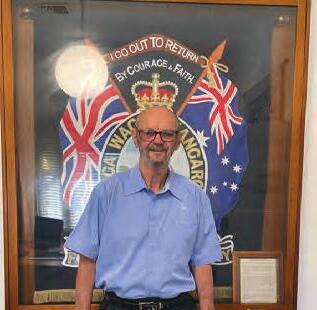
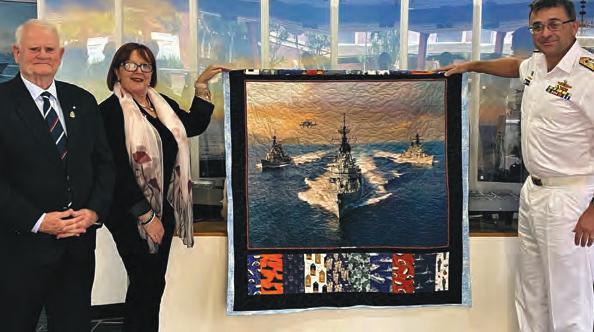
Rear Admiral Jonathan Earley, CSC, was presented with one such quilt in acknowledgement
of his ongoing support to the veterans’ community.
Members of the RSL NSW Auxiliary network volunteer their time to support veterans and their families by conducting hospital and aged care visits, and assisting with local RSL sub-Branch commemoration services and events.
RSL NSW President Ray James OAM and Pauline James present Rear Admiral Jonathan Earley, CSC, with his quilt.

The RSL NSW Compliance Annual Report (CAR) is now available for sub-Branches to complete. The report covers sub-Branch obligations under the RSL NSW Constitution, Standard Operating Procedures and more. Submissions will help inform future training and guidance materials for sub-Branches. Log in to the sub-Branch portal to complete by 31 May 2023.

AUSTRALIA DAY HONOURS Congratulations to the following RSL NSW members who were recognised in the 2023 Australia Day Honours.
Recipients and their RSL sub-Branch:
Paul Robert Bryant Fairfield
Raymond Peter Butterfield Toukley
Terry Edward Carroll Grenfell
Gary John McKay Kiama/Jamberoo
Alan Michael Rankins Swansea
Peter Michael Woodhouse Wyong
Peter William White Terrigal Wamberal
Henry Meskauskas Maitland
John Byron Wade Terrigal
John Desmond Ward Pittwater
Recipients and their RSL sub-Branch:
Harold James Allie Chester Hill-Carramar
Jennifer Elizabeth Collins ANZAC House Congratulations also to Ken May, Vice-President of Wagga Wagga RSL subBranch, who was nominated for Wagga Wagga Citizen of the Year earlier this year.
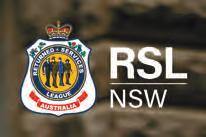
There should be no barrier for any current serving member or veteran of the ADF to join RSL NSW. That’s why we’ve made membership fee-free.
Members receive:
A membership badge
Reveille magazine
Access to RSL services and support
Connection to community
Mateship and connection to others who have served
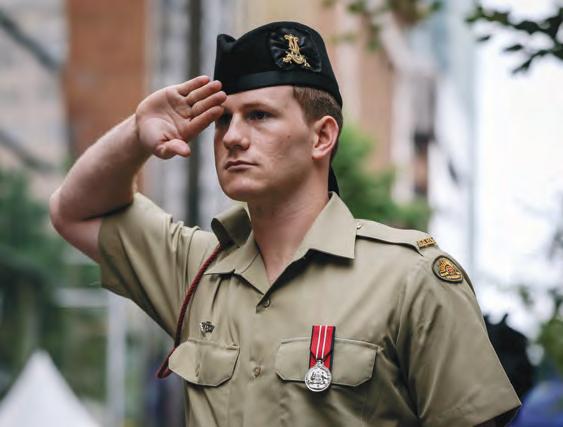
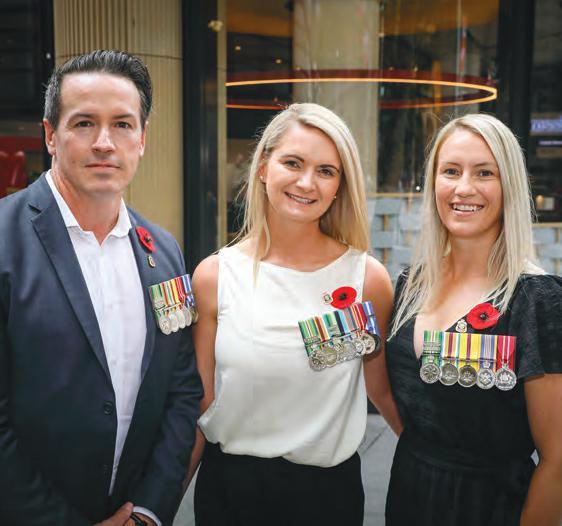
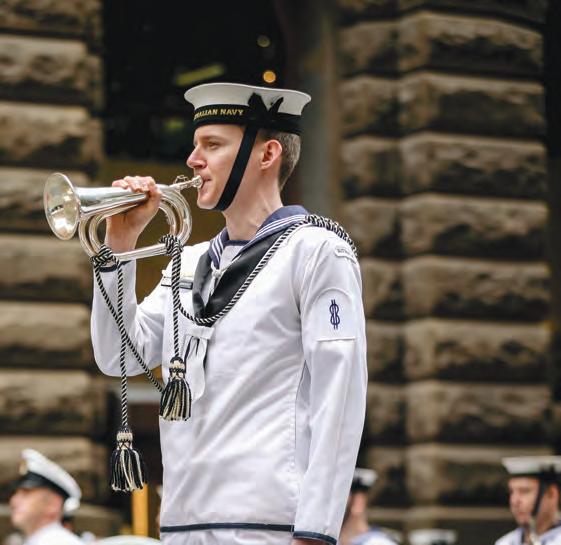
Opportunity to volunteer and support veterans and coordinate commemorations
Join
Scan code to learn more

Remembering the service and bravery of those who have served our country.
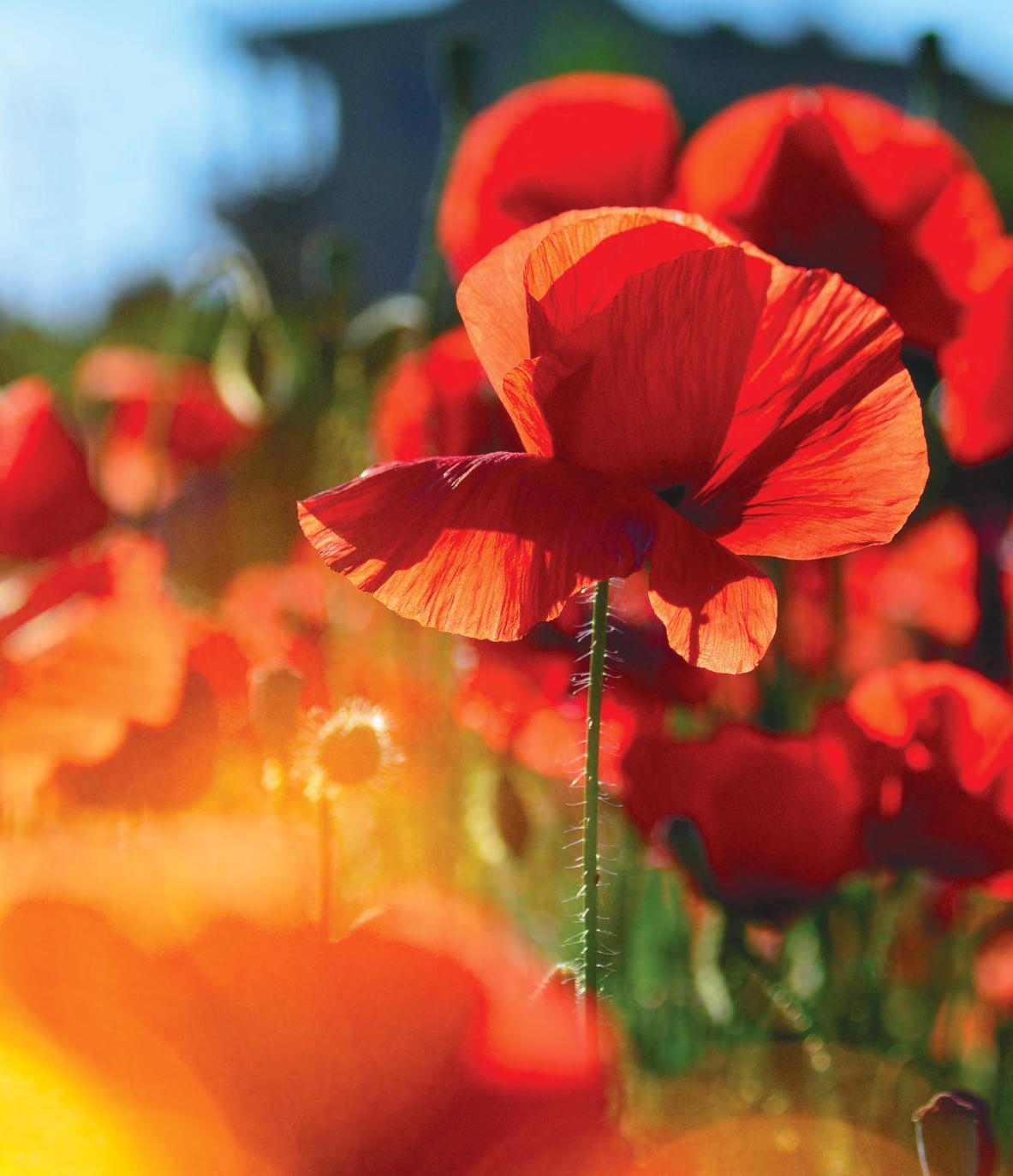
“LEST WE FORGET”
ABNETT, GJ A106226
BAKER, KG R62428
BOWDEN, RE 124628
BUCHANAN, SH R59764
GALE, A R94632
GIBLIN, AW R47340
GODWIN, SF 44766
HORSFIELD, KT R51944
HOWARD, BH S11498
HUGHES, NR R432807
LEGG, JH R58982
MARTIN, JL R42230
MAYNE, RS NX288009
MILLIKEN, RG 34484
MOORE, DG R52113
PRESS, RT R131331
REINHARDT, H R93270
REYNOLDS, BE WR3127
RITCHIE, AR R47245
ROBERTS, PJ R93737
STUART, PT S126616
TARLINGTON, JR S9826
VOTE, KJ 2679
ANDERSON, HA 8596992
ANDRISKE, JF NX96966
BLACKMAN, G 2781438
BOYLE, JC 2795092
BROWN, DV 2785016
BROWN, RA 3792342
BYRNE, SJ 2791096
COLEMAN, JF VF513156
CRISP, RJ 28531
CURTIS, DC 2783597
DAVIES, VW NX87027
DREW, H N283565
DRINAN, L 29338
FITZSIMON, JA 216966
FOSTER, GA 231119
FOX, WH NX80186
FROST, RJ 18593

GARRETT, IG NX169017
GAWNE, RG 1081
GOLDFINCH, JS 2783652
GOODWIN, K NX165987
GRAVES, RA NX177449
HADDEN, MI NF436071
HARDMAN, WH 5713848
HARDY, BW 225714
HARLEY, WD 38363
HARRY, JE NX90761
HAUSMAN, WW 00289525
HEATON, DT 2/410281
HERBERT, CL NX134943
HIBBARD, PC 2794453
HUNTER, DC 2787843
HUXTABLE, JH NX171985
IRVING, BC 54642
JAGO, KA 217926
JOHNSTON, AT NX191017
KELLY, JR 2701215
KEMBER, P 2799692
KITSON, IM NX109100
LAZARUS, KJ NX203809
LEE, JJ 2400687
MACPHERSON, BG NF455831
MCCANN, AR A2/4025
MCDONOUGH, JI NF435281
MCGREGOR, CW 215235
MCKENZIE, K NX87771
MEARS, J 3789372
MOSCATT, PG 2782260
MUSCAT, RE 2/410791
NEWBURN, RG 212039
NEWMAN, KF 8236762
NOLAN, GA 8262458
OAKES, A NX153769
OVERS, GA N482557
PEATTIE, JC NX97345
PHILLIPS, K 2778482
PICONI, RW N263071
PRESTON, LG 29711
PURVES, MJ NX142585
REGAN, W NX206000
REID, PM 235274
ROBINSON, JB NX140933
SALWAY, CG NX500317
SCALES, JF 2412308
SCASE, S NX115598
SCULLIN, P 43931
SEAL, CA 3411088
STUART, KL 342906
TESTER, T 3401102
THORNBURROW, E 23254350
TIZZARD, SK 215225
WALKER, EC NX20046
WATT, MH QX500756
WEERS, J 3794936
WILLIE, K 232061
WOODWARD, JH NX49832 »
ALLEN, B 436233
ANSTEE, DG A49420
BARNES, AW 164304
BELCHER, JW A217290
BOLDEN, BA A316135
BURGESS, ER A224310
BUTZ, HE 108620
BYRNE, KP A230840
CEREZO, IJ 165765
CLOSE, JK 139417
COX, RJ 138479
DEVEREUX, IE O215145
DOMONEY, GR A116995
EAGLE, JC 438988
GEORGE, R 433811
GOFF, AJ 108500
HARRISON, RM 105753
HOOPER, AB 71184
JELFS, NF 221960
JOHNSON, JD A19812
JUDD, RH 403517
MAIR, JF 224371
NORTH, WF A216401
PENDLETON, WD 131347
PICKFORD, RH 71616
RANSOM, GJ A6075
RAYNER, LF 127297
REEN, JN A22265
ROBINSON, GF 131133
SINGLETON, PS 134890
STANDEN, NE 130436
WALSHE, VW 110111
WRIGHT, BR 422320
WYLIE, NJ 110582
LUTMAN, SA
The five names below appeared in December’s ‘Last Post’ in error. The DVA has advised that a small number of its clients were impacted by a system reporting error and mistakenly reported to RSL NSW as deceased. The DVA has apologised for distress caused and invites those impacted to speak with the DVA directly on 1800 838 372.
NAVY
EAGLES, BL 66643
JOSW, BH R66585
ARMY
VRANKOVIC, I 46980
RAAF
HARDING, IJ A511354
STEAD, LV A117693
The information contained in the Last Post has been provided by the DVA and RSL members. Where possible we have attempted to provide all service details. We regret any missing information.
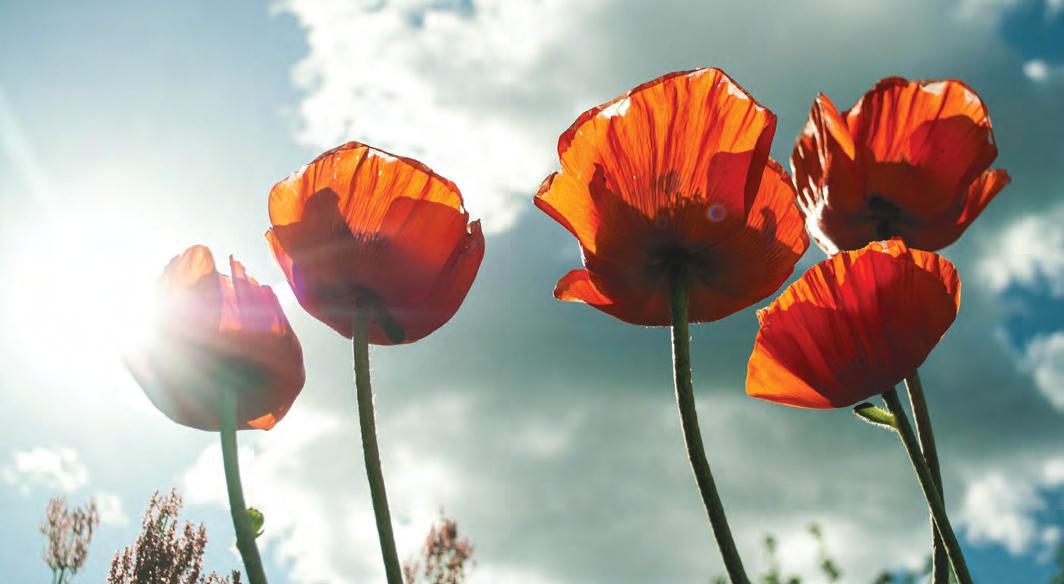

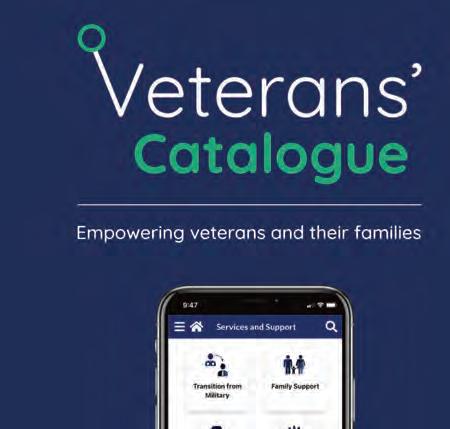
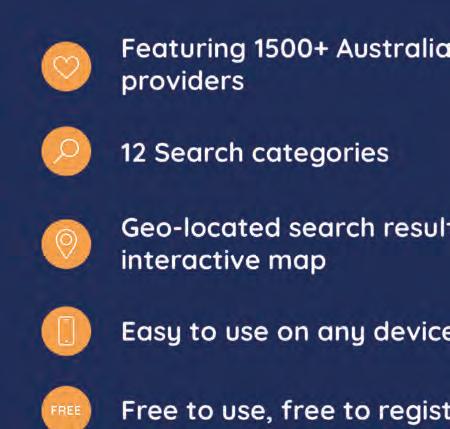

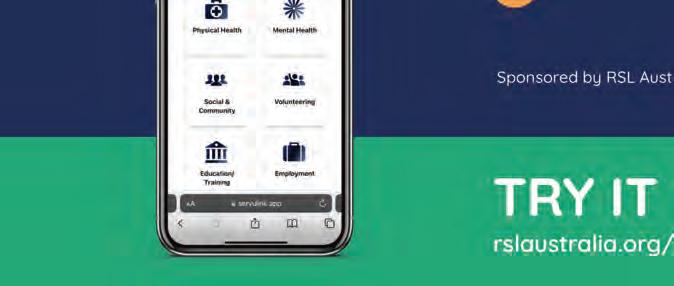
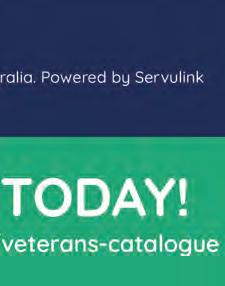


NOVEMBER 2022
“The Army vs Navy exhibition match was aggressive but fun. At the end of the game, we all had a laugh and swapped stories. There were some guys who hadn’t seen each other for 10-plus years. We were reunited by a game we all love. Hopefully it won’t take as long to be reacquainted in the future.”

— Bronsen Mitchell, National Manager for Army Rugby

Australiastands amongst the greatest nations on earth. But it takes a special kind of man to build a great nation. A man who sees Australia full of possibilities and is bold enough to make them happen. If that describes you or someone you know, it’s time to let Australia’s sons rejoice with a stylish fine jewellery piece only from The Bradford Exchange.

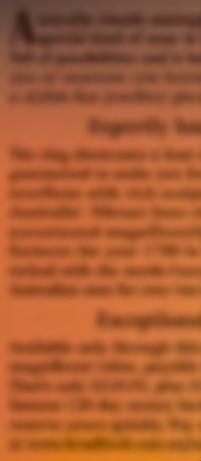
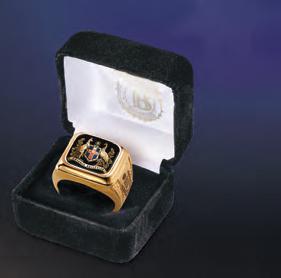

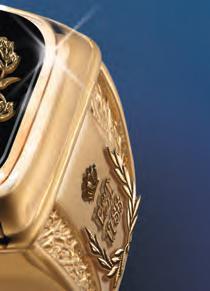


The ring showcases a host of uniquely Australian elements in an exclusive design guaranteed to make you feel proud. A traditional Australian coat of arms overflows with rich sculptural details including the stirring words ‘Advance Australia’. Vibrant hues of red and blue enamel and genuine black onyx are accentuated magnificently by the generous 24-carat gold plate. Each side features the year 1788 in honour of Australia’s founding. The inner band is etched with the words Courage • Mateship • Pride, attributes which have defined Australian men for over two hundred years.
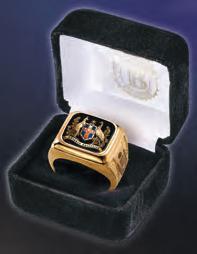
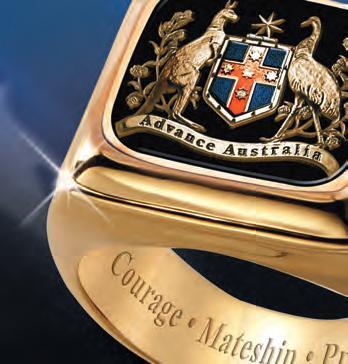










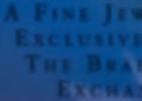
















Available only through this exclusive offer, the “Advance Australia Ring” is a magnificent value, payable in just five easy, interest-free instalments of $49.99. That’s only $249.95, plus $19.99 postage and handling, backed by our world famous 120-day money back guarantee. Quality hand-crafting will limit supply, so reserve yours quickly. Pay nothing now. Just return the coupon or go online today at www.bradford.com.au/aussie

Discover new ways to gain new members, reach out to your local veterans and their families, and create a larger support community.
Tune in to RSL NSW’s upcoming virtual event, Q&A:HowRSLsub-Branchesreach outtoveteransandgainnewmembers, to hear from fellow veterans about how their sub-Branches are attracting new members –and then take those tips back to your own sub-Branch.
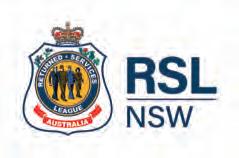
Attendees will:
Hear how sub-Branches are using the RSL NSW membership toolkit to reach new members

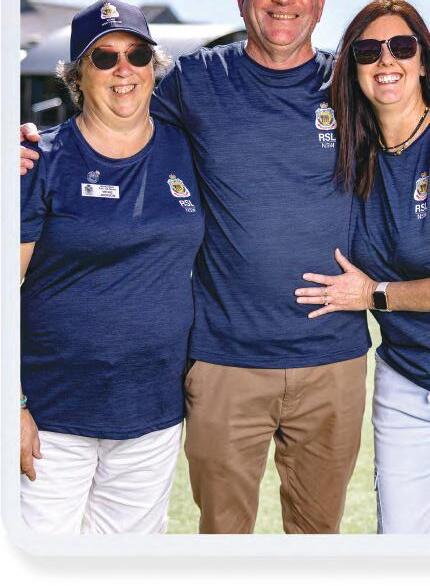
Find out which events younger veterans and their families attend
Have the opportunity to ask the panel their own questions in a live Q&A
Virtual event
When: 7:30pm, Thursday 30 March
Where: Online

An invitation will be sent to all RSL NSW members and sub-Branches in March with details on how to register.
